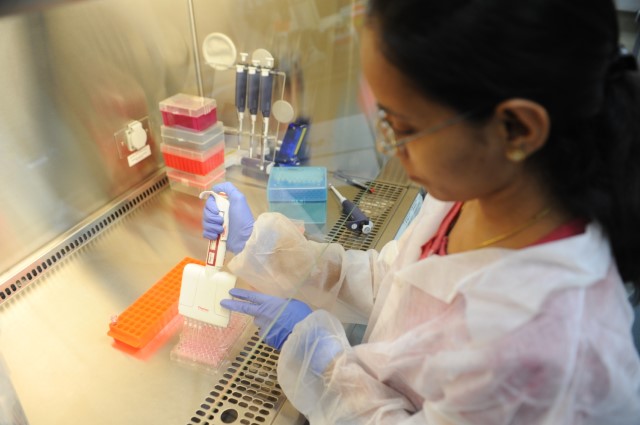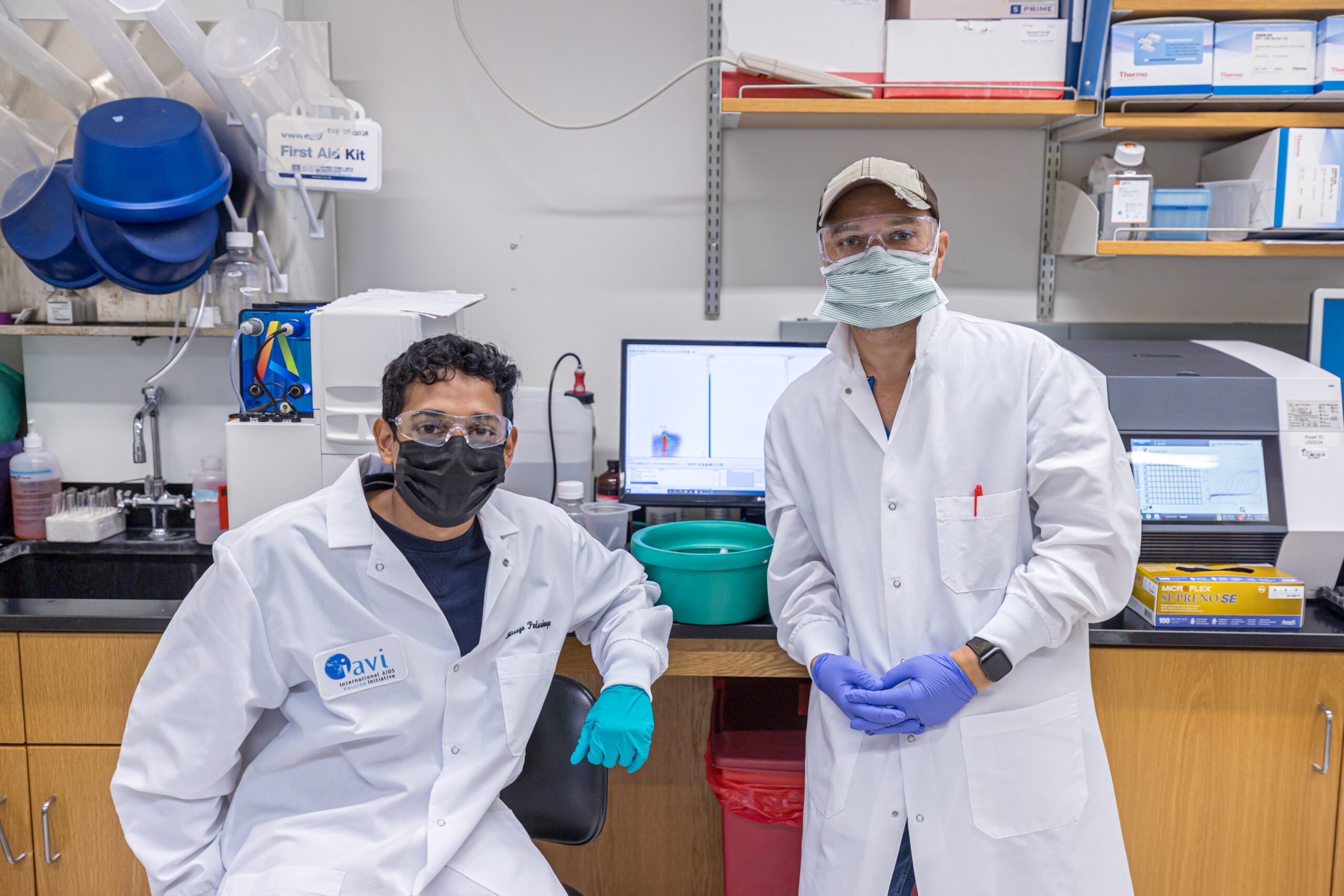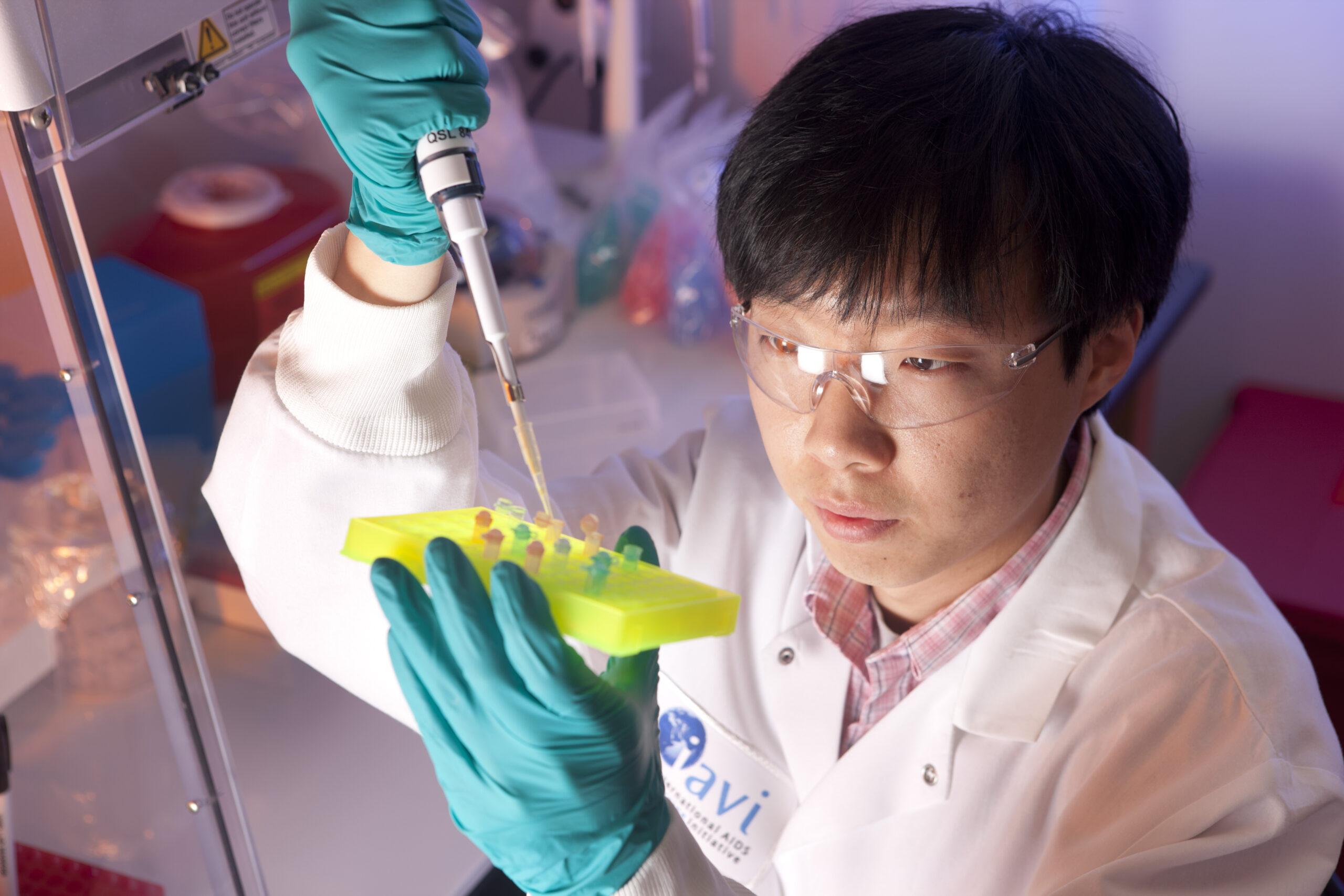We drive scientific discovery across a range of health areas
IAVI’s discovery science efforts are focused on identifying and designing new product candidates to address HIV, tuberculosis (TB), antimicrobial resistant (AMR) pathogens, and emerging infectious diseases (EIDs). These product candidates include vaccines and biologics (monoclonal antibodie and alternative biological products).
Our discovery portfolio is closely linked to IAVI’s Africa and India hubs, and the teams collaborate with IAVI’s clinical development and global access teams. We take a multidisciplinary approach across our research programs and prioritize discovery research that can be translated into products that meet affordability and accessibility targets for global access.
Our discovery programs include HIV vaccine design and development; broadly neutralizing antibodies for HIV prevention, treatment, and cure; vaccine design and monoclonal antibody discovery for AMR pathogens and EIDs; as well as pathogen surveillance and data science. IAVI scientists publish their research in high-impact journals and collaborate closely with other scientists across the world.
Our discovery laboratories

The ATRP
The Antibody Translational Research Program (ATRP), a partnered program of IAVI with the Translational Health Science and Technology Institute (THSTI), is based at the NCR Biotech Science Cluster in Faridabad, Haryana, India. Scientists at the ATRP develop and use innovative tools, platforms, and technologies to identify, design, and assess vaccine and monoclonal antibody candidates for infectious diseases that are relevant to people living in India and South Asia. The ATRP spurs indigenous discovery and preclinical development and promotes collaborations with regional low-cost manufacturers to enable end-to-end product development in India.
Learn more about the ATRP
The DDL
The IAVI Vaccine Design and Development Laboratory (DDL) based in Jersey City, New Jersey, facilitates the design and development of viral vectors for vaccine delivery. Scientists at the DDL modify natural viruses to deliver vaccine immunogens with the goal of generating rapid and long-lasting antiviral immune responses. The DDL team uses the vesicular stomatitis virus (VSV) as a vector to develop vaccine candidates for HIV and emerging infectious diseases such as Lassa fever, Marburg virus disease, Sudan virus disease, and Crimean Congo hemorrhagic fever disease.
Learn more about the DDL
The NAC
The IAVI Neutralizing Antibody Center (NAC), based in La Jolla, Caliofrnia, is focused on vaccine design, vaccine immunology, and antibody discovery and optimization for a wide range of infectious diseases. Using rational protein design, NAC scientists are advancing a germline targeting strategy for HIV vaccine development, which is being evaluated in Phase 1 trials. NAC scientists also lead antibody discovery and immunological research for some of the most difficult and important global health targets, including HIV, bacteria with antimicrobial resistance, and emerging infectious diseases. NAC scientists support a range of scientific capacity-building and strengthening activities in Africa and India and collaborate with many different partners around the world.
Learn more about the NAC